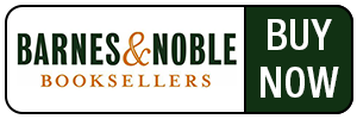Did you know that some noncaloric artificial sweeteners can actually make you fat—or even kill you? Did you know that the overconsumption of certain soy products can upset your hormonal balance and lead to hypothyroidism? Most people didn’t, until now. Politically Incorrect Nutrition exposes many current and widely held beliefs foisted on both consumers and health-care practitioners by well-oiled, agenda-driven food industry propaganda. It analyzes popular claims and reveals what, in fact, is healthy—and what is decidedly unhealthy—by exploring the most current and objective scientific data regarding good nutrition.
If you want to provide the best possible food for yourself and your family, or if you simply want to learn the truth behind the many food myths that are presented to us day after day, Politically Incorrect Nutrition is must reading.
Michael Barbee, CDC, is an educator who has taught in private and public schools for thirty years. While specializing in the field of health and nutrition, he became a Certified Diet Counselor through the Institute for Educational Therapy in Cotati, California. Along with teaching, Mr. Barbee enjoys speaking to groups concerned with the relationship of diet to health and disease.
Table of contents
Preface
Green Tea: A Cup of Contaminants
Soy: No Wonder Food
Cholesterol: Some Good News
Conjugated Linoleic Acid: Can Beef and Butter Keep You Thin?
Fluoridation: The Poisoning of America, Part 1
Aspartame: The Poisoning of America, Part 2
Osteoporosis: More Than Just Calcium
Bovine Growth Hormone: (Some) Milk is Not Good For Anybody
Eggs: More Good Cholesterol News
Plastics and Microwaves: What Have We Done to Our Food?
Vitamin C: Too Much of a Good Thing?
Food Irradiation: The Public as Guinea Pigs
Vegetarianism: Ethical and Dietary Considerations
The Best Diet: Is There One?
The Nonpyramid Food Guide
Notes
Index
Endnote
Resources
Review Quote
" . . . a book that tackles common myths and misconceptions about what food is healthy and what is not . . . particularly harsh on fads and fashions . . . an excellent read."
Introduction or preface
Eating for health is both a science and an art. Researchers continually update our knowledge about the science of nutrition, about how the body responds biochemically to the substances we ingest. Almost daily, it seems, we are bombarded with new information about diets, much of it contradicting what we have long held as true. Should we eat fewer carbohydrates or more? More protein? Or more “healthy” fats?
There is much confusion in the minds of many. And much fear. We have been told that a great number of cancers can be directly tied to the foods we eat—or don’t eat. We want to be healthy. We want to do the right thing, but the overload of information and advice is causing many simply to throw up their hands in disgust, despair, or resignation.
In the process, the art of eating is becoming a lost one. I’m not talking about gourmet eating here, but rather the intuitive art or ability to listen to the body—to be conscious of our bodies’ responses to what we put in our mouths—to be aware of what foods truly nourish us.
It is easy to see the signs of a public out of tune with food: high rates of heart disease, osteoporosis, cancer, and the almost epidemic rates of obesity, diabetes, and hypothyroidism. If we continue to hide our heads in the sand about nutrition, or on the other hand, if we quickly jump on any new diet bandwagon without giving a close look at the science behind it, we will continue to fight a losing battle.
While the science of nutrition constantly changes, there is one science that does not change, one science that is often at odds with the nutritional health of the nation: political science. Sadly, it seems, the prime motivation of many politicians is to keep power, and to do so they often form an unhealthy partnership with corporate interests. In an attempt to make profits, industry enlists the aid of elected officials and their appointed bureaucrats to make policy which affects public health.
This is no surprise, I’m sure. This is not news. But the extent to which the safety of what we eat and drink is affected by corporate influence and greed may come as a surprise. In fact, we should be outraged. Our health is at stake as we are poisoned daily with what should never be in our foods, and we are poisoned with bad advice. Some of that advice is well-intentioned, but most of it is based on old, unscientific information. Some of it is based on myth. And some of that information is actually misinformation designed to keep the public ignorant while the food companies reap enormous benefits.
This book makes no attempt, as in a court trial, to present both sides of nutritional controversies. With certain issues, there are many studies that arrive at quite opposite conclusions. Agribusiness, factory farms, and industrial and political concerns have already presented their case. With faulty or falsified research, with a misinterpretation of the facts, they have greatly influenced what we consume. As a consequence, the health of the nation has suffered. It is time to present the other side. It’s time to show how we have been misled. The readers can act as the jury, using common sense to arrive at a better understanding of nutrition. The readers can determine whether the information presented here rings true in their own lives on both an intellectual and an intuitive level.
There is a battle of immense significance taking place today, the outcome of which will affect the health of everyone in this country. On one side we have the science of nutrition and the art of eating. On the other side, the opponent is represented by the science of politics and the art of making money. Let’s clear the air and see what the facts are.





